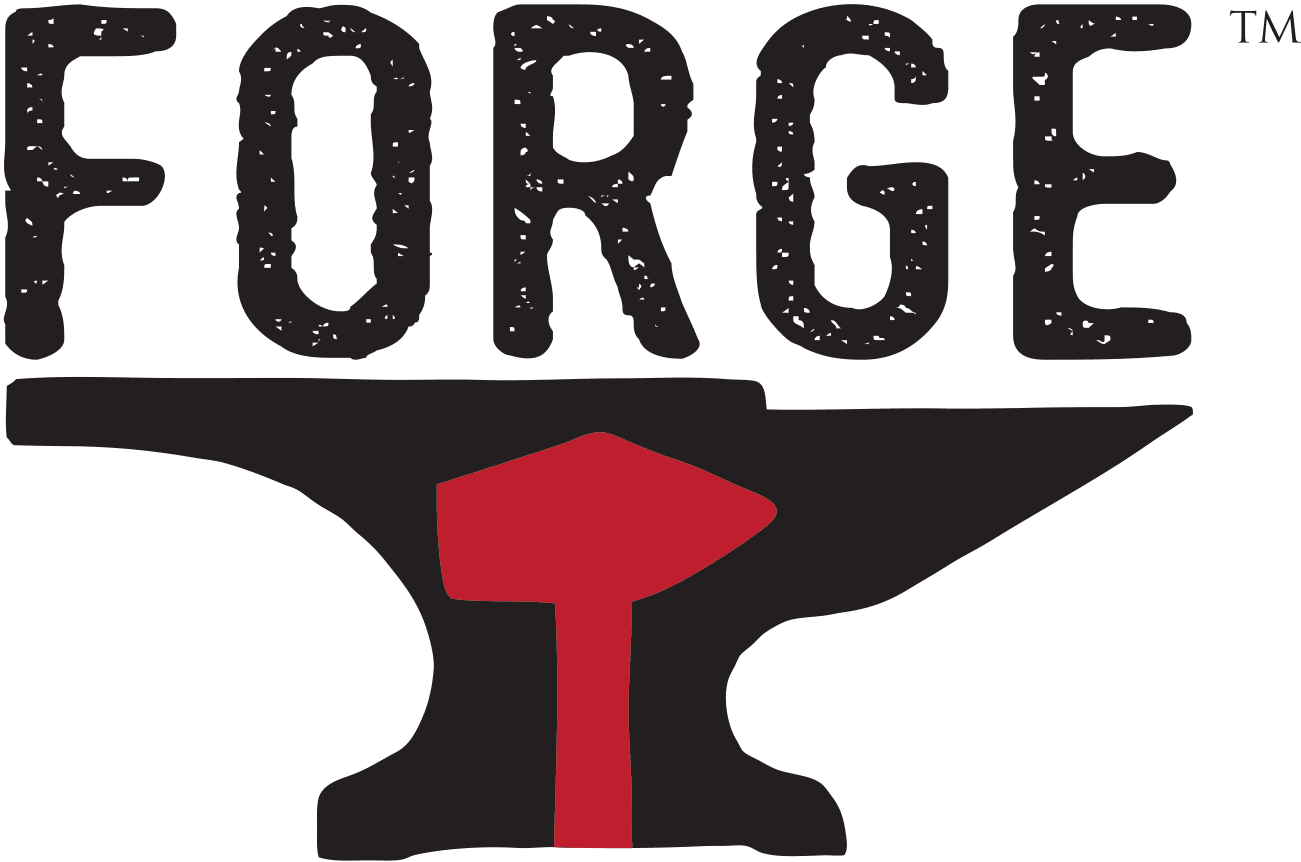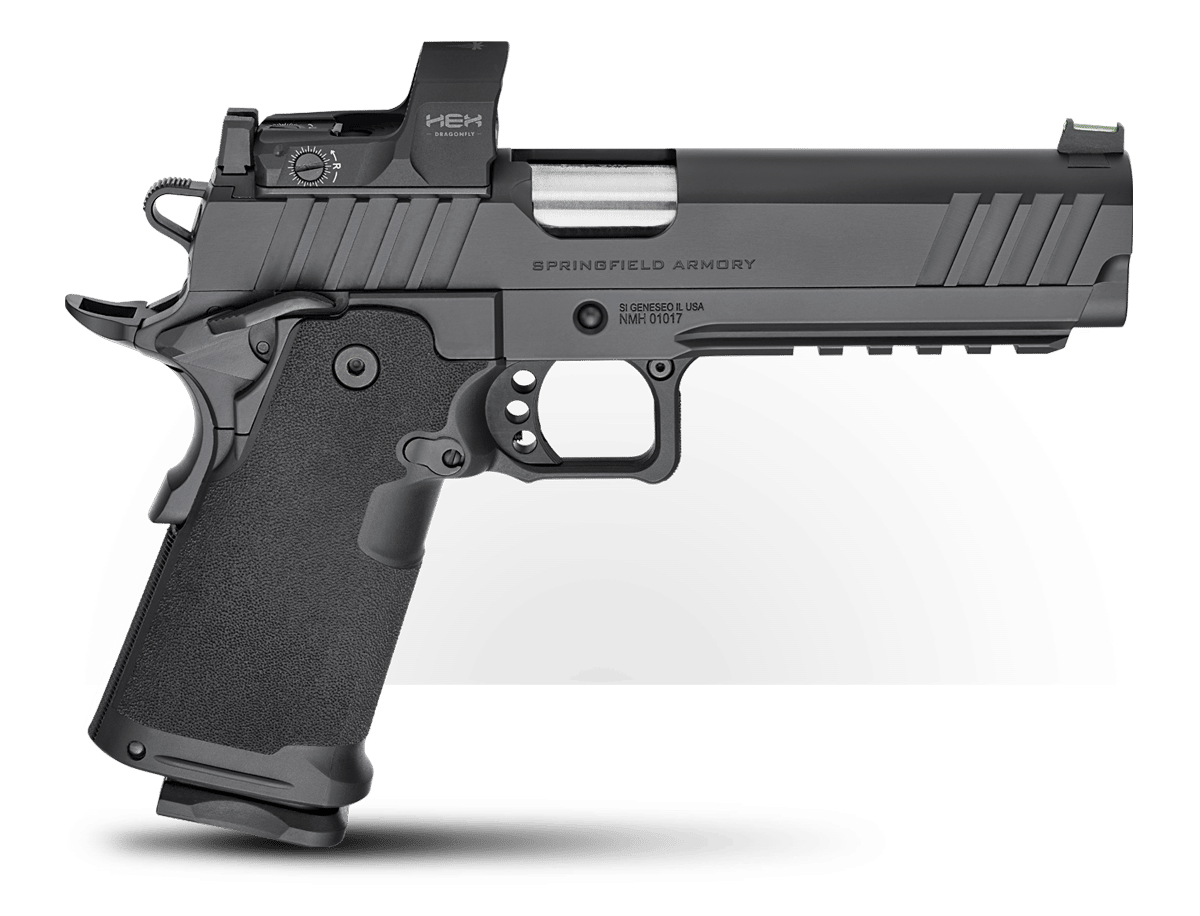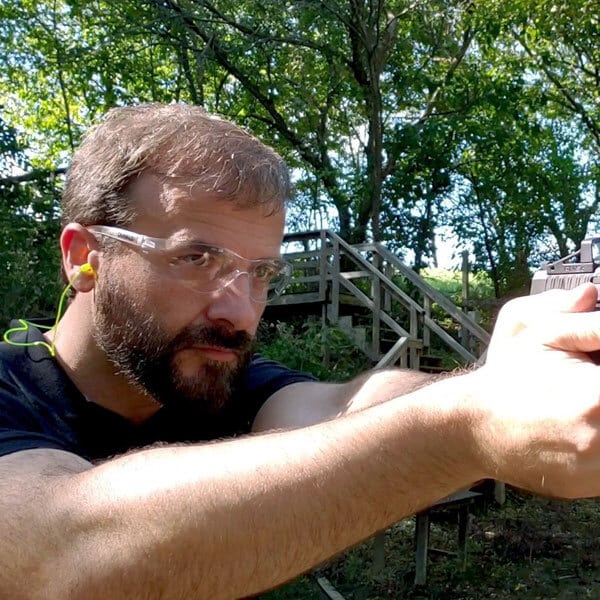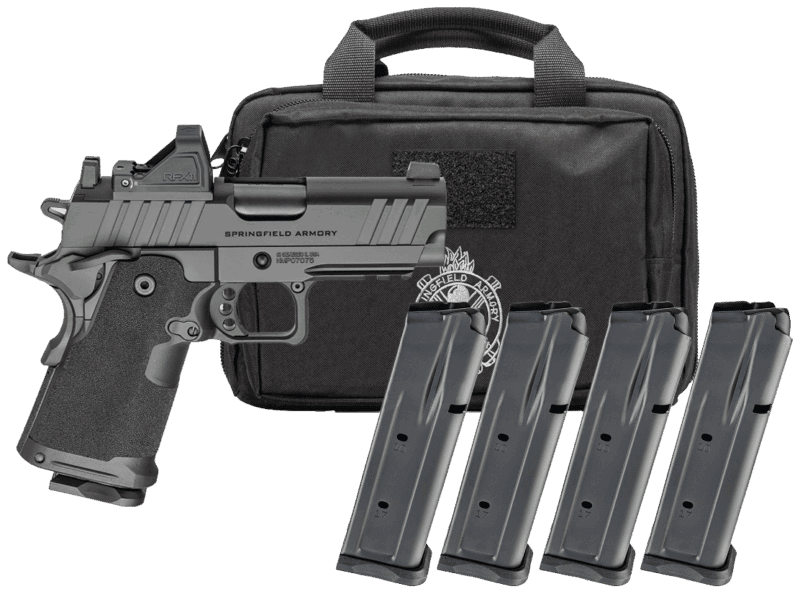The Armory Life Interviews:
John Chapman
February 7th, 2023
8 minute read
The Armory Life is honored to have recently had the opportunity to conduct an interview with John “Chappy” Chapman, renowned SWAT officer and trainer.
During his three-decade career in law enforcement, Chappy has brought an analytical and cerebral approach to the kinetic world of tactical operations, earning him the respect of those “in the know” within the law enforcement community.
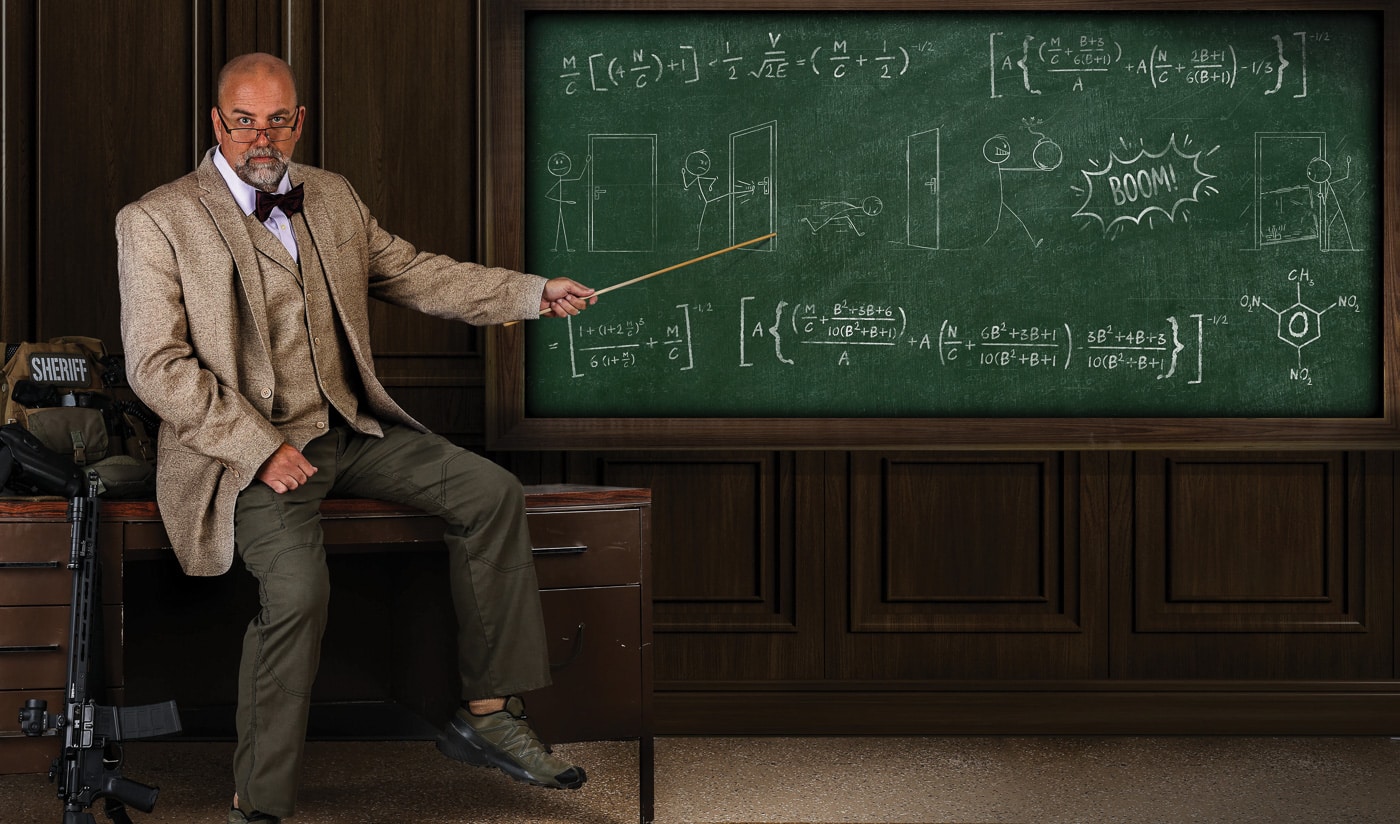
We would like to thank Mr. Chapman for taking the time to do this Q&A session with The Armory Life.
The Armory Life (TAL): Please tell us a bit about yourself, for those who might not be familiar with you and your background.
John Chapman (JC): Thank you for inviting me to be a part of this. I’ve been a follower of The Armory Life for several years now. I’ve been a cop for a little over 30 years at this point, spending some of that time as a part-time officer in order to gain very valuable additional experience as a trainer, industry consultant and overseas contractor in Iraq.
I started my professional life in the U.S. Navy, where I was a Machinist Mate. When I got out in 1992, I joined the law enforcement community, and began by developing the most important skill in the police world … being good at patrol. After several years in that role, I chose to specialize in SWAT and training, and was very fortunate to be mentored by and train with some amazing teachers.
I began teaching cops basic firearms skills in 1994 and worked hard over the following years to develop my skills in the other, more complex factors of police work. These included SWAT operations, crime suppression, violence investigations, night vision operations, defensive tactics, patrol and SWAT leadership, and several others. I was told when I was new in the profession how important it is to “always be training.” I still focus on my development in these critical skills, more than 30 years later.
While working, I attended college part-time, and earned my Bachelor of Science in Physics and my Master’s Degree in Homeland Security. I pursued my Physics degree because I found the field fascinating, and I thought it would help me to learn how to logically separate emotional and factual factors.
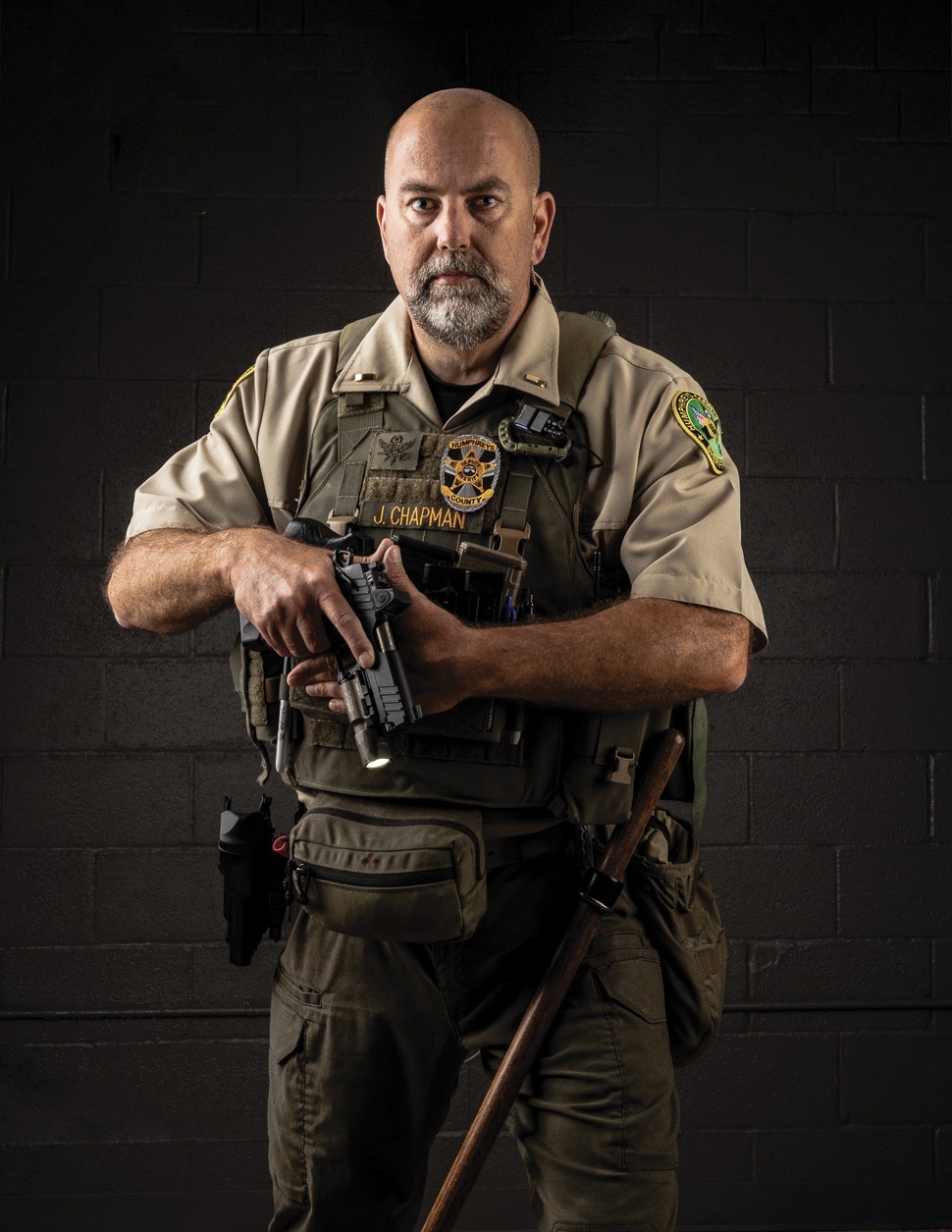
The education I received in this field has allowed me to make logical judgments in confusing situations, and it has also helped me develop my ability to organize and deliver training in a way cops and citizens can use more effectively. I felt, and still feel, it’s a critically important factor for LEOs to nurture our cognitive aspects as thoroughly as we can, and not just our physical skills.
TAL: It sounds as though your educational background has played a significant role in your work. Can you tell us some more about how it has directly impacted it?
JC: Yes, absolutely. Formal education isn’t important in order to promote in the ranks, in my opinion. The truly important factor in education for LEOs is in developing their full cognitive and creative capabilities. This kind of development allows them to help the overall profession in not just the work itself, but to help grow everyone’s capabilities.
The profession will wither and diminish if it is not being actively developed by all of us. The law enforcement community must continue to expand its knowledge and ability as a profession, generation after generation. Without this, it runs the risk of becoming too intellectually stagnant to protect the Constitution at the local level across the country.
TAL: What led you into this LE career that has become your life’s work?
JC: Well, it sounds corny, but I knew for as long as I can remember that this is the profession I was born to perform. Knowing that, I decided at a very young age to do as much good as I could to grow our work as a community.
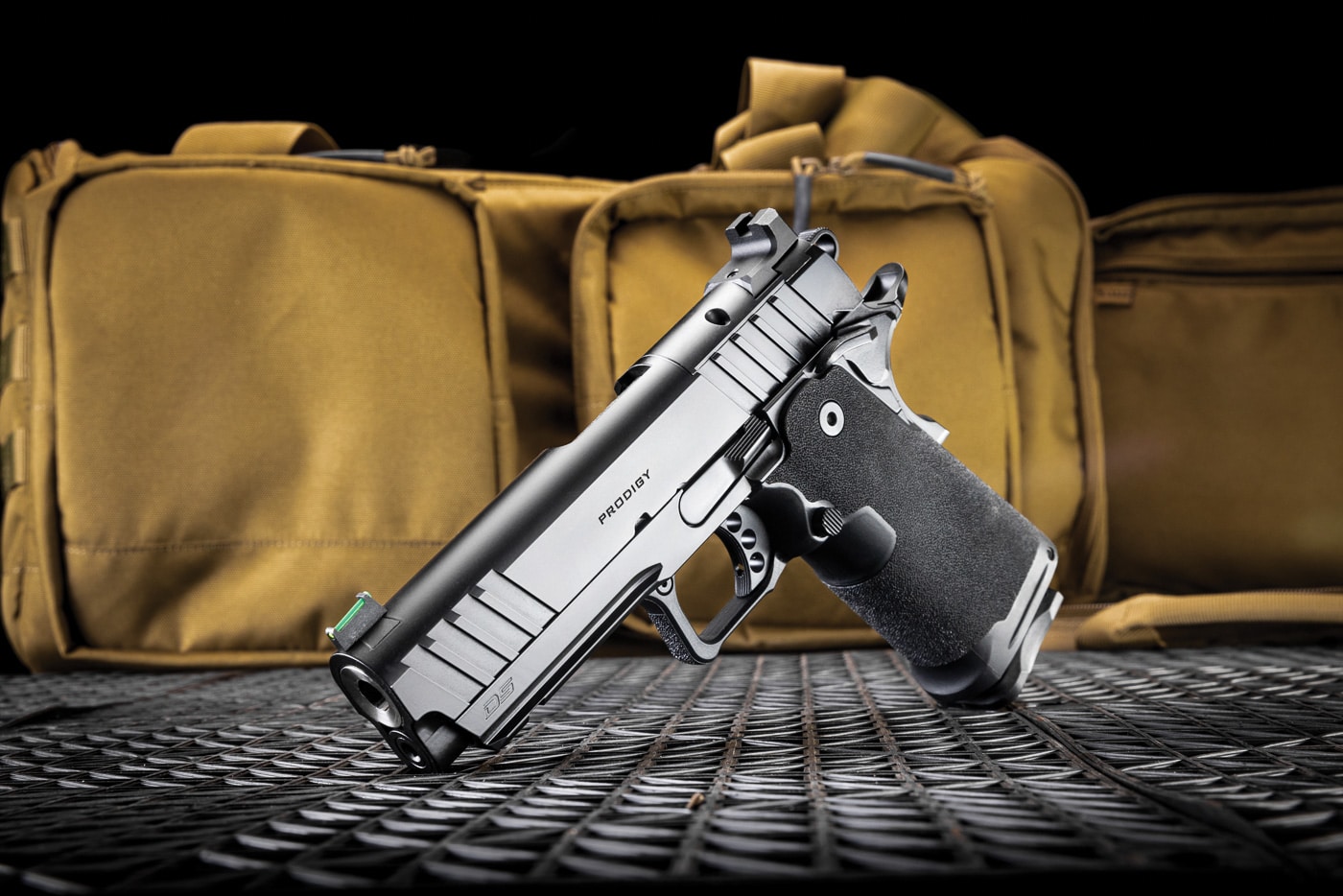
While in the U.S. Navy, I’ll admit that I convinced myself I wanted to be a physicist. But after becoming a cop in order to pay for the opportunity to go to college, I quickly recognized that police work was where I belonged. I stuck with college because the physical sciences are a life-long fascination for me. But, they are not a “calling” for me like law enforcement.
TAL: You mentioned that took some time during your LE career to allow yourself the ability to develop additional experience in other roles, including as a trainer. Can you tell us a bit more about your experience and development as a trainer?
JC: I was very lucky to encounter some phenomenal teachers early on in my career. I soon found I really wanted to be good at training, because it was a way to reach LEOs and armed citizens on a personal level to help them improve their capabilities.
After teaching these types of skills for several years, I had the opportunity to mentor under Pat Rogers, a legend in the modern development of law enforcement gunfighting skills and tactics. This relationship inspired me to push myself, and Pat’s expert guidance led me to what I do today.
Later, I began teaching on my own with Josh Jackson, and the two of us created LMS Defense. Later, I had the honor of teaching under Pat at EAG Tactical, full-time. After Pat passed away, I helped found Forge Tactical LLC, where we teach law enforcement officers as well as armed citizens. These classes teach the advanced techniques and procedures I think are important for people to have to grow their abilities beyond simply weapons manipulation and shooting skills.
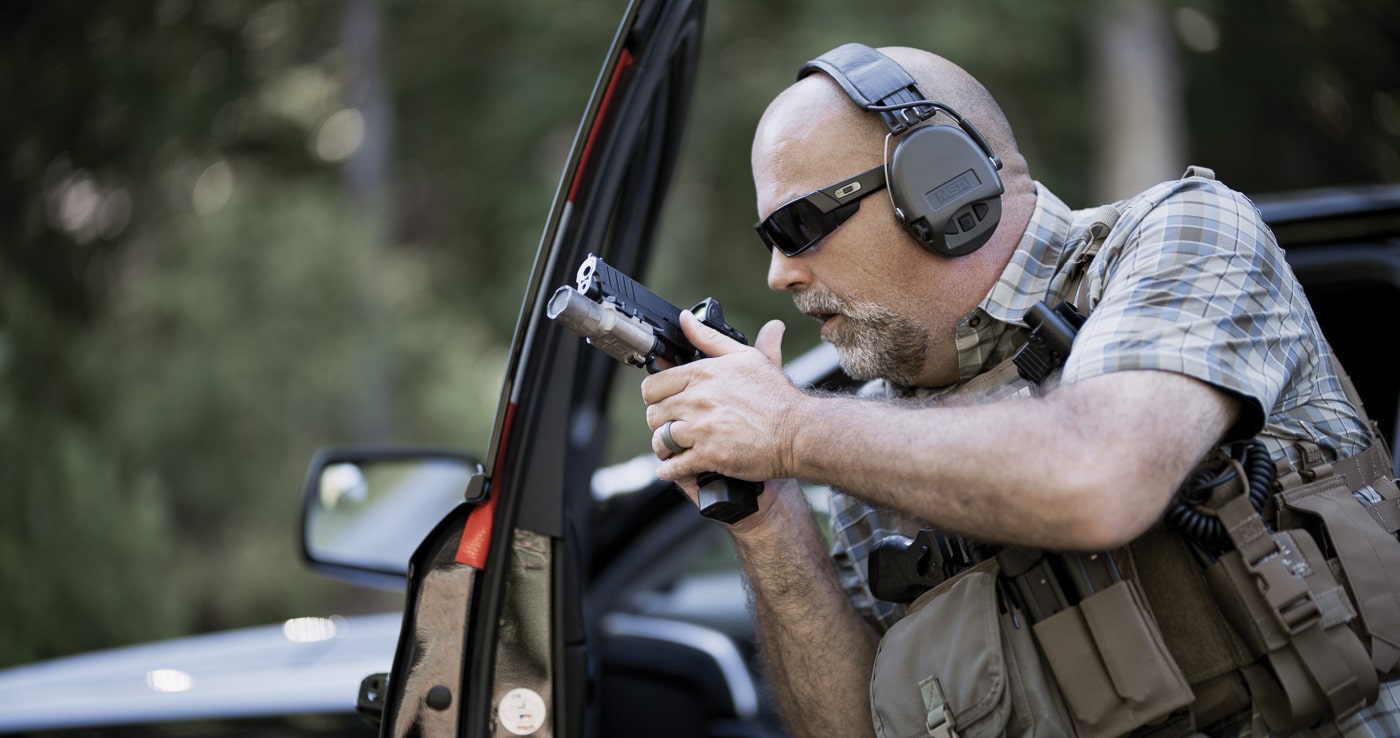
TAL: We mentioned at the beginning of this piece that your career has been focused on SWAT applications, which would seem to be all about advanced specialization of skills. In a prior conversation we had, you mentioned CQB as an area of particular focus for you. Can you tell us some more about this and your connection with that application?
JC: Early in my career, I viewed Close Quarters Battle (CQB) as a “settled skill set,” done effectively the same way in all units, both police and military. As I became more cognizant of the specialized skills of CQB, I became more and more aware that we, within the LEO and SWAT communities, had different requirements than those of military units.
I spent several years studying the issue, and decided we needed to create a doctrine specifically for domestic LE teams as well as armed citizens, for various-sized teams, and ones who operate without the supporting fire, intel and other support units with which military units work.
While in my graduate school program, I used the advice of my mentors, teammates and course advisers to create a CQB training plan specific to LEO’s and armed citizens that can be used as a baseline for teams to use as a foundation for their own operational methods. More than two decades later, this CQB program is still evolving and growing.
TAL: We are sure that in your work as a law enforcement officer, you have seen some crazy things over the years. Are there any particular events you would like to share with our readers?
JC: For some reason, the craziest calls always seem to come to me in threes. Many years ago, for instance, I dealt with three calls of some naked homeless dudes who were arguing with unoccupied parked cars, all within about two weeks.
Up to that point, I hadn’t dealt with what appeared to be a unique and specific result of the combination of meth addiction and mental issues, and have not seen it since. There must have been some form of group psychosis specific to empty cars in the water that month, and never again since.
I seem to catch these types of specific mental illness/drug issues in clusters.
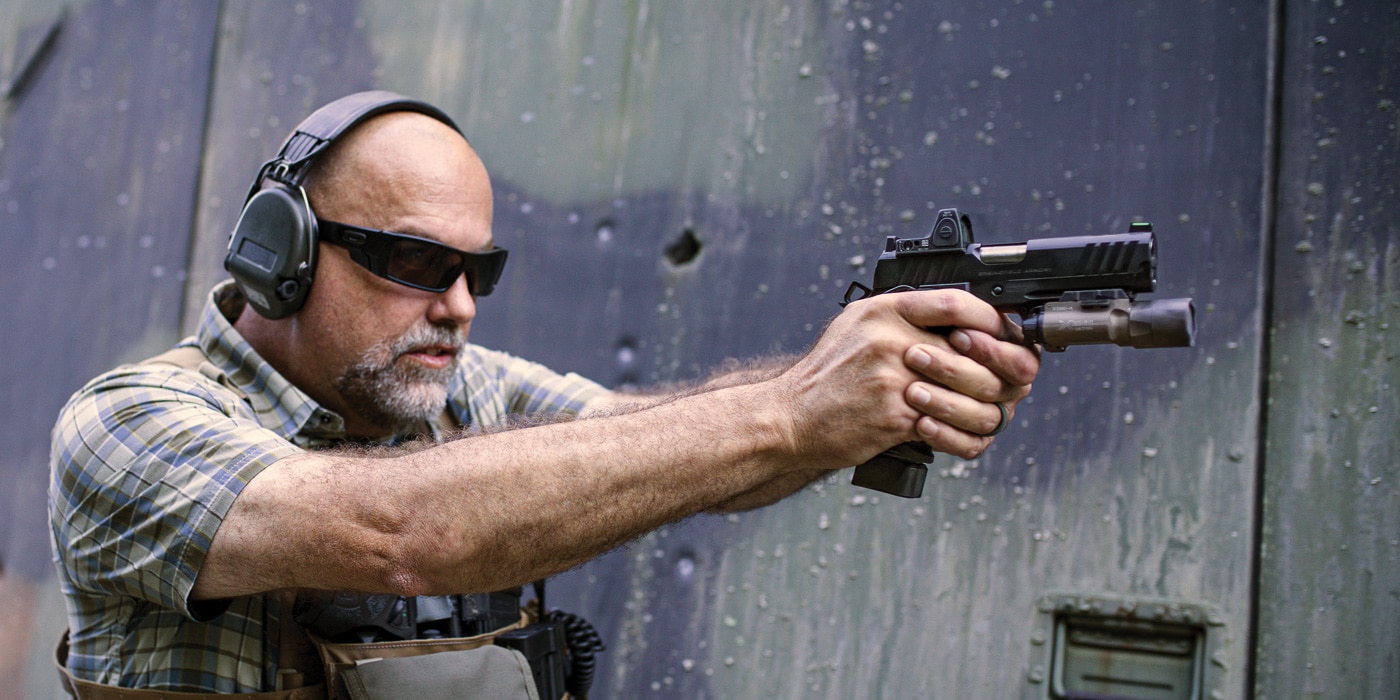
TAL: Did your military-oriented experience, made up of both your time in the U.S. Navy as well as your time as a contractor in Iraq, have any influence/effect upon your career in law enforcement?
JC: Absolutely. I learned some important skills and self-discipline, but the most important things I learned from these experiences were gained by paying attention to the leadership and focus needed on the task at hand. I realized that all good leadership is personal, not general.
A good leader does not treat every person the same way, but is able to read each of their teammates and communicate and teach them individually while staying focused on the larger mission. I have used this key lesson I learned there in my LE career by always remembering that all leadership is both mission-focused as well as personally delivered.
TAL: Can you tell us a bit about your current job, and what you are trying to accomplish there?
JC: Well, I have a few jobs right now. I am currently a lieutenant, responsible for working with our patrol teams to work cases, as well as lead and also teach where there are opportunities to help the younger deputies grow.
I am both a SWAT team leader and a training officer for the department, the latter of which where I help develop and deliver training in all manner of tasks in all of our divisions. I love my job.
I also get to train other departments around the state through both our department’s SWAT training program, and around the country with Forge Tactical. I also have the opportunity to work as an industry consultant with firearms and night vision companies.
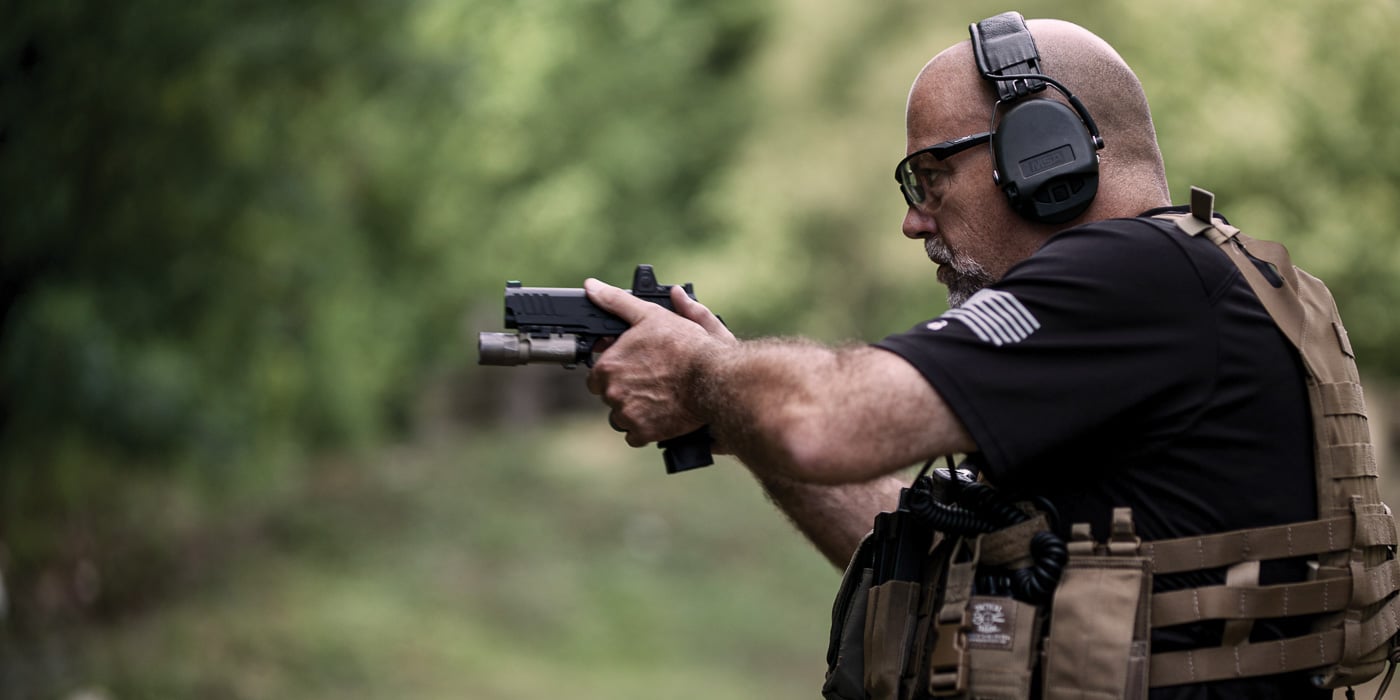
TAL: Do you have any favorite Springfield Armory firearms? If so, which? Have any played a role in your time in LE?
JC: My current favorite Springfield Armory firearm is the 1911 DS Prodigy, specifically the 4.25” model. I have been a huge fan of the 1911 my entire career and have wanted to see the incorporation of a double-stack 9mm 1911 into the larger LE community for a long time. The limiting factor, until now, has been the ability to develop one that met the high standards necessary for LEOs, while being priced at a level that departments could afford to deploy.
I think striker-fired pistols are a great “general issue” handgun system for police departments, but I think the officers who have trained to maximize the striker-fired system can really benefit in expanding their capability by incorporating a single-action, double-stack 9mm 1911 pistol.
TAL: Thank you so much for taking the time to do this interview with us, and for giving us your insight on these fascinating topics. We truly appreciate it.
JC: Thank you for having me. I appreciate the opportunity.
Editor’s Note: Please be sure to check out The Armory Life Forum, where you can comment about our daily articles, as well as just talk guns and gear. Click the “Go To Forum Thread” link below to jump in and discuss this article and much more!
Join the Discussion
Featured in this article
Continue Reading
Did you enjoy this article?

 137
137




